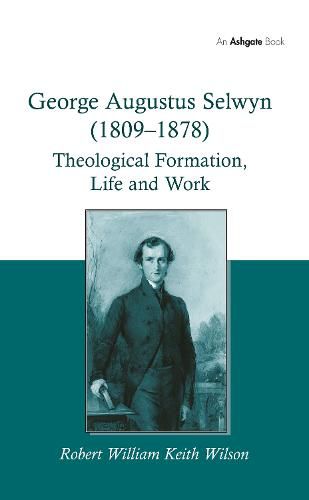Readings Newsletter
Become a Readings Member to make your shopping experience even easier.
Sign in or sign up for free!
You’re not far away from qualifying for FREE standard shipping within Australia
You’ve qualified for FREE standard shipping within Australia
The cart is loading…






The conventional portrayal of George Augustus Selwyn, the first Anglican bishop of New Zealand, focuses upon his significance as a missionary bishop who pioneered synodical government in New Zealand and acted as a mediator between settlers and Maori. George Augustus Selwyn (1809-1878) focuses on Selwyn’s theological formation, which places him in the context of the world of traditional high churchmanship, rather than the Oxford Movement narrowly conceived. It argues that his distinctiveness lay in the way in which he was able to transplant his vision of Anglicanism to the colonial context. Making use of Selwyn’s personal correspondence and papers, as well as his unpublished sermons, the book analyses his theological formation, his missionary policy, his role within the formation of the colonial episcopate, his attitude to conciliar authority and his impact upon the diocesan revival in England. The study places Selwyn alongside other likeminded high churchmen who shaped the framework for the transformation of Anglicanism from State Church to worldwide communion in the nineteenth century.
$9.00 standard shipping within Australia
FREE standard shipping within Australia for orders over $100.00
Express & International shipping calculated at checkout
The conventional portrayal of George Augustus Selwyn, the first Anglican bishop of New Zealand, focuses upon his significance as a missionary bishop who pioneered synodical government in New Zealand and acted as a mediator between settlers and Maori. George Augustus Selwyn (1809-1878) focuses on Selwyn’s theological formation, which places him in the context of the world of traditional high churchmanship, rather than the Oxford Movement narrowly conceived. It argues that his distinctiveness lay in the way in which he was able to transplant his vision of Anglicanism to the colonial context. Making use of Selwyn’s personal correspondence and papers, as well as his unpublished sermons, the book analyses his theological formation, his missionary policy, his role within the formation of the colonial episcopate, his attitude to conciliar authority and his impact upon the diocesan revival in England. The study places Selwyn alongside other likeminded high churchmen who shaped the framework for the transformation of Anglicanism from State Church to worldwide communion in the nineteenth century.